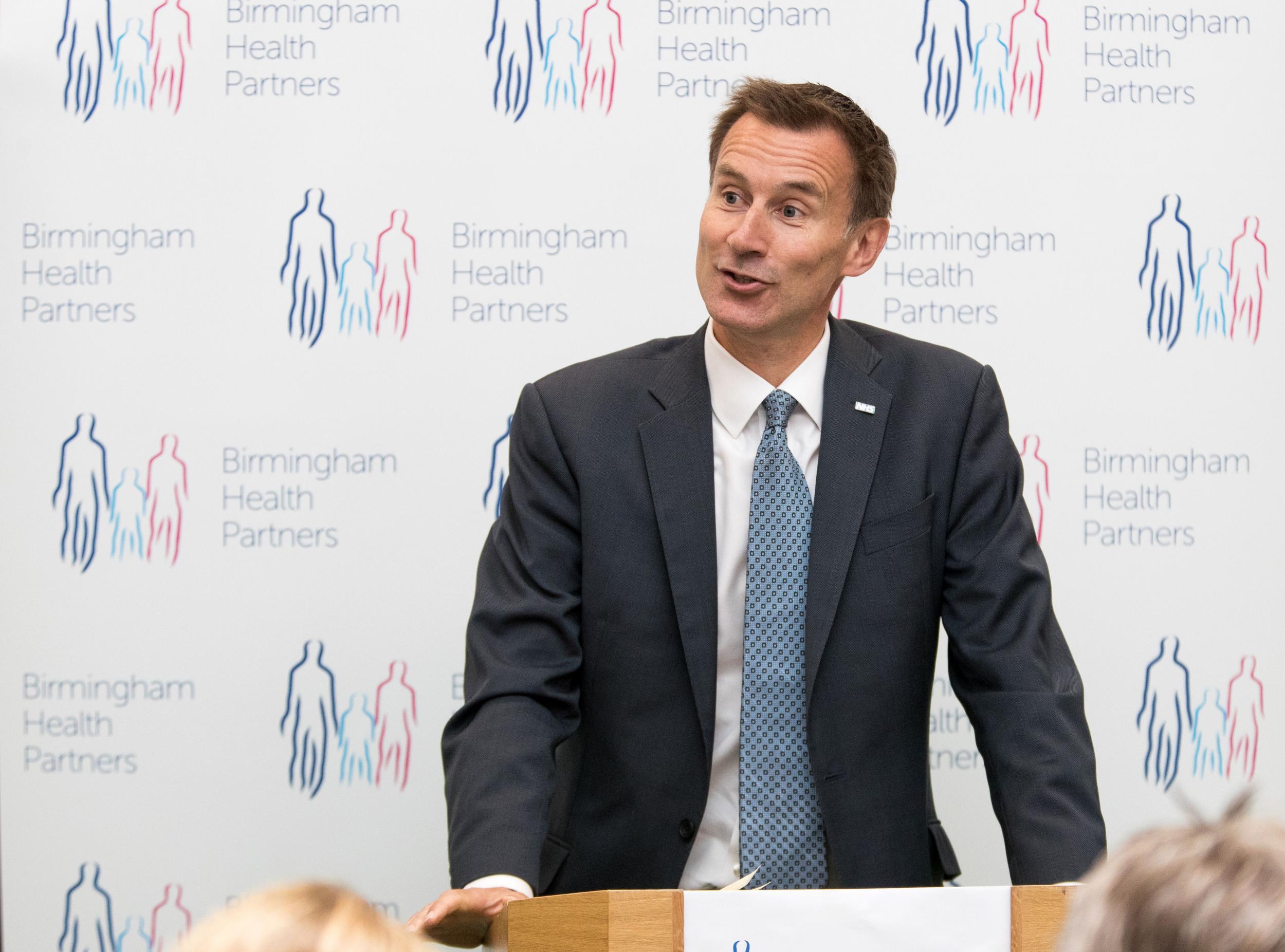NHS England’s plan to introduce hospital referral reviews shows how the service has been reduced to nothing more than a skeleton
In some CCGs in England, patients are already being denied prompt hip or cataract operations, hearing aids and fertility treatments

This week a new, and potentially worrying proposal, emerged from NHS England from NHS managers who are attempting to find yet more ways to cut costs despite the enormous pressures our health service is facing.
The latest wheeze is for hospitals to no longer automatically accept a patient who has been referred to them by a GP, but for this clinical decision to be scrutinised by a panel of other doctors before it is approved. This might sound like a reasonable approach, a helpful bit of checking perhaps by fellow colleagues. However, the devil as always will be in the implementation. These panels will not it seems be there to provide a useful clinical cross checking service – there main aim will be to cut costs. In other words, insert themselves into the referral process to try and save the hospital money by not taking patients even if clinically the GP in their assessment regarded it as appropriate.
One issue that has been raised by Professor Azeem Majeed of Imperial College London is that this could lead to delayed referrals and warned about the assessors not being “fully aware of the background to the referral”. How can a peer review board truly assess if a patient should go to a hospital without the suitable background information that was used to make the initial referral?
This is sadly part of a creeping trend with the health service. In some Clinical Commissioning Groups (CCGs) in England, patients are already being denied prompt hip or cataract operations, hearing aids and fertility treatments. The list of hard-to-get services is increasing raising the specter that the NHS could be reduced to a skeleton service.
This situation is being caused because the NHS is under huge strain from a period of sustained austerity. In this difficult economic climate it is not surprising that local NHS bodies across the country are having to make difficult choices in agonising circumstances and this panel idea is another example of this policy drift. And unfortunately, the financial squeeze on health services will get much tighter over the next five years, with spending per person on the NHS estimated to be falling by 9 per cent.
The Institute for Fiscal Studies said that even if the NHS budget remained protected from cuts, the growth in population would lead to big real terms cuts, especially as our population ages. We are in the process of a huge demographic shift at present, with one in four people expected to over the age of 65 by 2030. Although medical advances are helping us live longer and with conditions that would have been fatal to past generations, the fact is that as we get older we pick up more ailments and as the body slows down, often need more care. We are close to having a million people living with dementia for example, a condition that requires intensive, specialist care that cannot and should not be done on the cheap.

Only yesterday, the Centre for Health and the Public Interest (CHPI) published a report which says that the NHS is "leaking" money to private companies in contracts to build and run hospitals. It says that based on 107 PFI (Private Finance Initiatives) contracts in England, such companies had made pre-tax profits of £831m in the past six years. It is outrageous to see over £800m of much needed money being leaked out to private companies for profit alone. Private Finance Initiatives are an extortionate drain on the public purse, with private companies scandalously gaining at the expense of taxpayers and patients.
On top of this the NHS is struggling to meet unrealistic £22bn efficiency savings, and GPs in particular are not getting the resources and support they need. If Jeremy Hunt wants more care to happen in a community setting, then the resources have to follow. From a practical point of view, another economic argument arises that undermines any plan to introduce such incentives – if people are denied hospital treatment, then their health will invariable be compromised as their wellbeing will worsen. This will result in patients needing more admissions to hospital, visits to the GP and so on. In the long term, this measure will therefore end up costing the NHS more money and waste further time, exacerbating the very problem that this such financially driven directive is supposed to solve.

You have to have some sympathy with NHS managers who have this on their plate. They are being asked like GPs and hospitals doctors to increasingly perform and impossible task. While they attempt to squeeze extra pennies from their services, the NHS faces the growing reality of longer waiting times, cancelled operations and sinking staff morale. No one should be against NHS England making sure every piece of expenditure is spent wisely, but we cannot and must not set ourselves down a path that devalues our cherished general practice, and starts the process of splintering the delivering care based solely on balancing the books.
The real solution that politicians of all parties have yet to grasp is that we need a long term funding plan for the NHS that gives the public what they deserve: appropriate, safe and effective care.
Kailash Chand OBE is the former deputy chair of the BMA council and honory vice president of the BMA
Join our commenting forum
Join thought-provoking conversations, follow other Independent readers and see their replies
Comments